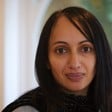Media Watch 21 August 2013
Two leading anti-censorship groups have criticized a BBC decision to remove mention of Israeli apartheid by world-renowned violinist Nigel Kennedy from a TV broadcast.
Index on Censorship and English PEN told The Electronic Intifada that Kennedy’s comments were made in context and should not be removed from a recorded broadcast due to be shown on BBC Four this Friday.
Kennedy, who was playing at the BBC Proms on 8 August with the Palestine Strings, broke off to declare towards the end: “It’s a bit facile to say it, but we all know from the experience of this night of music that giving equality and getting rid of apartheid gives a beautiful chance for amazing things to happen.”
The entire concert was broadcast live on BBC Radio 3 and the comments were left in an audio recording available on the BBC website’s playback service, iPlayer, for the next seven days.
Baroness Deech, a member of the British Parliament’s upper house and a former BBC governor, complained to the corporation, calling Kennedy’s remarks “offensive and untrue” and demanding an apology.
According to a report in the Jewish Chronicle, she added: “There is no apartheid in Israel.”
Misguided
The BBC confirmed to The Electronic Intifada that Kennedy’s comments will be removed from this Friday’s televised broadcast of the concert. However, a BBC spokesperson said this was “absolutely not” a result of political lobbying.
She added: “The iPlayer reflects the live broadcast of the event, while the BBC Four broadcast is deferred and is edited appropriately as a music television program.”
Jo Glanville, director of English PEN, which defends “the human right to freedom of expression“ told The Electronic Intifada in an email:
While I recognize the BBC’s commitment to impartiality, this is a misguided decision. Nigel Kennedy felt moved to make a statement – his comments are clearly his personal views given within the context of the concert. Editing them from the broadcast is unnecessary and heavy handed.
These views are echoed by Index on Censorship. The organization’s head of arts, Julia Farrington, wrote to me saying the BBC’s decision set an impossible precedent:
The BBC’s commitment to impartiality should not extend to censoring individuals who appear on its programs. Nigel Kennedy’s comments were made in the context of a performance with young Palestinian musicians.
Refusing to broadcast them would set a precedent that the BBC could not hope to uphold. Will they edit out every potential “political” comment made by performers that appear on the BBC?
Israeli apartheid
Palestine Solidarity Campaign, which campaigns for an end to the Israeli occupation and self-determination for the Palestinian people, has written to the BBC asking it to reverse its decision and broadcast the entire concert, unedited, on Friday.
Sarah Colborne, its director, said:
The BBC should see sense and allow Nigel Kennedy’s words to be heard by the BBC Four audience on Friday.
The simple fact is that Israel practices apartheid. For example, Palestinians living in the occupied Palestinian territory are not allowed to vote in the elections of the regime which occupies them, thereby denying them the basic human right of self-determination. Nigel Kennedy was speaking the truth and this should be heard.
The Palestine Strings consists of musicians as young as 12 from the Edward Said National Conservatory of Music based in the West Bank. Many who played with Kennedy at the Proms wore their keffiyehs (traditional Palestinian scarfs) throughout the concert.
In a statement to The Electronic Intifada, Kennedy’s manager Terri Robson wrote:
The BBC itself couldn’t have been more welcoming to the Palestine Strings (the Prom director agreed to host them the moment we asked), the BBC facilitated their flights, hotels and visas with the Israeli authorities and, most importantly, invited them onto the world’s greatest music platform.
Some felt that the young Palestinian musicians, with their scarves proudly draped over their shoulders, the flags flying in the Royal Albert Hall arena and the incredible music-making did all the talking that was necessary and conveyed a strong, positive message about Palestinians that the outside world very rarely sees.
These amazing, talented young people did their country proud and I hope that this achievement does not get buried.







